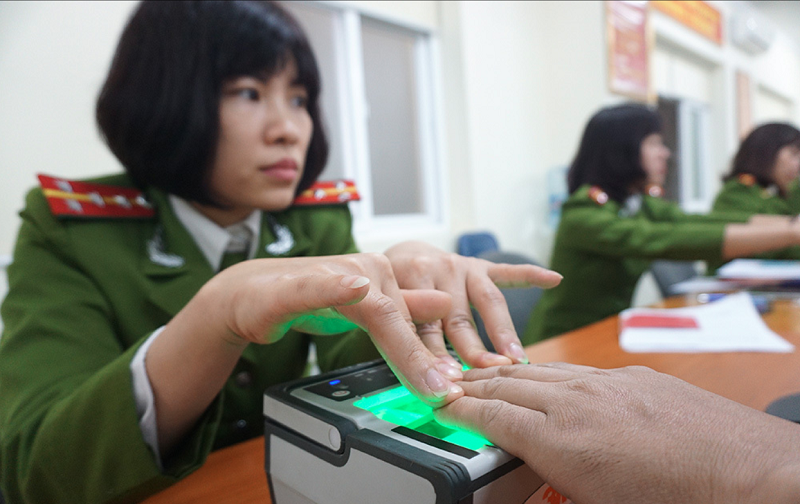Vietnam plans to issue electronic ID card with multiple information
Local experts said the Ministry of Public Security should consider the necessity and the cost of the new ID card issuance.
The Vietnamese Ministry of Public Security has planned to issue chip-based identity cards from November 2020 if the proposal is endorsed by the government.
The chip-based identity card is smart card that is produced according to international standards and requirements with the latest encryption codes.
| Major General To Van Hue, head of the Department for Administrative Management of Social Order under the Ministry of Public Security. Photo: Ba Do |
The issuance of smart card is expected to be completed in July 2021 at the latest for all citizens from 14 years of age, according to Major General To Van Hue, head of the Department for Administrative Management of Social Order under the Ministry of Public Security.
Information of 20 different fields like insurance, driving license, tax, health insurance, among others would be incorporated into the card in a project that is now available for comments from relevant agencies, the police officer said.
The card, which is designed to be encrypted, would store facial recognition features, fingerprints, and anthropometry, he added.
Notably, the card would be highly secure without counterfeiting and unauthorized installation. It can store much more information than identity (ID) card with barcode that has been issued since 2016.
Explaining the time to issue the electronic card, he said Vietnam couldn’t conduct this project until now thanks to a cheaper cost from domestic production of chips.
| Police in Hanoi get fingerprints to make ID card with barcode. Photo: Giang Huy |
Questions remain
Commenting on the move, Dr. Nguyen Truong Thang, head of Institute of Information Technology under the Vietnam Academy of Science and Technology, said it should consider the necessity of the card issuance and cost.
“The issuance really matters if it’s available for only several million people in urban city, but is not helpful for dozens of millions of people in rural areas,” VnExpress cited Thang as saying.
Major General Nguyen Thanh Hong, member of the National Assembly’s Commission for Defense and Security, pointed out both pros and cons of this kind of card, saying that it will be in line with the international trend thanks to the abolishment of procedures and papers but the project will cost a huge amount of money.
Mr. Hong said the project on national database on population and renewed ID card costs more than VND3 trillion (US$130.4 million) and predicted that the chip-based ID project would cost more than that.
He added that the project will be effective if the Ministry of Public Security completes the national database on population to make the database synchronous with that of other sectors.
Over the past 63 years, the ID card in Vietnam has undergone five times of changes. The first 9-digit ID card made debut in 1957. It was renewed in 1964 and 1999. The 12-digit ID card was introduced in 2012 and ID with barcode was churned out in 2016. This kind of card is now available in 16 cities and provinces.
The Law on Citizen Identification in 2014 stipulates that people from 14 years old are eligible to get an ID card and it will be renewed when they turn to 25, 40, and 60 years old.












